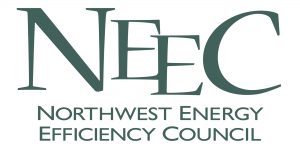Happy end of February, everyone. This is the time of year when I have to remind myself that Spring is just a few weeks away. The grind of rain, and darkness, and for us parents of little ones, colds, stomach bugs and other ailments can really drag you down. But I’m here to remind you that Spring is coming and when it comes to our industry, there is no shortage of interesting news these days. Read on for recent updates from the field.
Analysis and Request for Information
First off, analysts from the Regional Technical Forum (RTF) presented the results of their analysis of “flexibility” within the Pacific Northwest context. This analysis looked at the interactive effects of energy efficiency and demand response and the potential grid benefits of better coordination between the two. You can review the results of their analysis here. There were a range of findings including the rising importance of hourly load data to quantify value at a more granular level. Later in the week, the Conservation Resources Advisory Council (CRAC) held its first meeting of the year where attendees heard from a range of presenters starting with a discussion of how energy efficiency impacts building resiliency and how to quantify that resiliency. The committee also heard a description of the Whole Homes Rebate program from Danielle Walker of DOE. This new program is funded by the recent passage of the Bi-partisan Investment Act and the Inflation Reduction Act and will inject several hundred million dollars into our region over the next ten years to provide rebates to homeowners for efficiency and electrification. One particularly interesting element of the program is a measured performance path, which would – in effect – enable residential pay for performance and aggregation. We haven’t tried that yet up here (as they have in California) and this is a good opportunity to do so. Thoughts about how best to approach it? The DOE has an RFI out for input on the program, which can be found here and Danielle strongly encouraged folks to respond to the RFI. The deadline for response is coming up on March 3rd.
Legislation in the PNW
Both the Washington and Oregon legislative sessions are well underway and NEEC has been engaging with both. In Washington, we’ve been testifying in opposition to SB 5057, which seeks to delay compliance with the Clean Buildings standards while convening a select group of stakeholders to study compliance costs. While we understand compliance can be complex, we also think it’s essential to maintain the current industry momentum, get through this first cycle, and then perhaps look at lessons learned and ways to improve the process for the next cycle. We were also excited to see HB 1777 introduced. This bill impacts our state’s energy services performance contracting (ESPC) provision for public buildings, allowing service providers to bring more financing to the table through energy as a service offerings. This is a great way to evolve the ESPC program and to offer new and innovative ways for public buildings to access the capital needed to invest in essential energy upgrades.
In Oregon, we have been awaiting details of legislative action stemming from last year’s work of the Resilient and Efficient Buildings Taskforce. In particular, NEEC is eager to see details on SB 870—Oregon’s approach to a statewide building performance standard, as well as details on SB 871, which aims to expand public building energy performance contracting. NEEC has also advocated for the Oregon Department of Energy and its essential role in the state’s energy strategy and is tracking a slew of other interesting bills.
Membership and SBX
On the membership side, we are excited to announce that we will be hosting a member meeting later this year. Details have not yet been worked out, but stay tuned for information about what should be a both fun and informative networking event. And in the same vein, registration for the 2023 Smart Buildings Exchange is now open. This free conference will convene August 15-17th with two days of virtual programming and a third day of in person programming (details forthcoming soon). You can register for the event and track updates at the conference website www.sbxconference.org and don’t forget to follow the Smart Buildings Center and NEEC on Linked In.
And as always, if you have thoughts, questions or ideas to share with us, don’t hesitate to reach out.
